A Startup Declaring the End of the Plastic Era: The Dayone Lab 2024-08-22
Smilegate strives to create a better world where future generations can live happily. To this end, it discovers and invests in companies with new technologies and values, supporting their growth and innovation. This approach fosters the creation of new markets and jobs while advancing technologies that benefit society. “Startup Garage,” we take a closer look at companies partnering with Smilegate to expand social impact.
“We will replace single-use plastic bags, which are difficult to reduce despite causing many environmental issues, with eco-friendly materials so humanity can enjoy sustainable convenience.”
This is the goal of Lee Joobong, CEO of The Dayone Lab—to create a better planet by developing materials and technologies that make the end of plastic possible.
Plastic is one of the main materials used by humanity today. It is cheap, strong, and easy to process, leading to massive consumption and disposal. It is even cited as evidence for defining a new geological epoch called the Anthropocene, which highlights humanity’s impact on Earth’s geology and ecosystems.
However, plastic’s disadvantages are clear. It causes environmental pollution, takes hundreds of years to decompose, and disrupts ecosystems. Many experts warn that microplastics may pose an even greater threat than the toxic chemicals generated during plastic production and decomposition.
The Dayone Lab has developed eco-friendly materials by modifying the carbohydrate structures of starch and cellulose to change their physical properties. These materials emit less carbon during production and safely decompose under various conditions, such as composting and anaerobic digestion. They are used as raw materials to produce alternatives to single-use items commonly known as “plastic bags.”
The Dayone Lab succeeded in producing pellets—small granules made by melting, extruding, and cutting thin sheets—which is a technically challenging process. This achievement allowed them to secure both price competitiveness and usability.
In just three years since its founding, CEO Lee has grown the company rapidly enough to establish both a Process and Product Development Team and a Materials R&D Team. At CES 2024, the world’s largest showcase of cutting-edge technologies, the company won the Innovation Award in the Sustainability category with its biomass-derived platform material, “RETARCH.”
Smilegate accelerated The Dayone Lab’s growth as a strategic supporter. The company built its foundation for growth at Smilegate’s Orange Planet, while Smilegate Investment led both the seed funding and Series A lead investments.
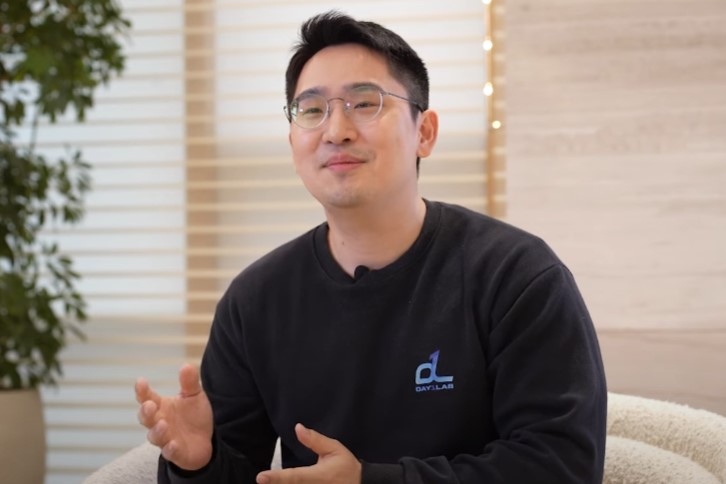
‘더데이원랩’ 이주봉 대표
Developing and producing eco-friendly materials to replace plastic must not have been easy.
Of course, it wasn’t easy. It’s not just about creating materials that decompose well—you also have to ensure they offer the same level of usability as plastic while being safe enough to ingest.
Developing new materials never goes exactly as planned. We needed to make films from these materials but encountered problems such as tearing, water resistance, and fire resistance. Through countless trials and validations, we eventually created RETARCH.
RETARCH is a composite material based on technology that reinforces starch. If you imagine the texture of dumpling wrappers, that’s close. It smells sweet, like popcorn or dalgona. Since it is a bio-based material, it emits little carbon, and no microplastics are generated during decomposition.
At first, because it was an entirely new material, manufacturers were reluctant to produce it due to concerns over equipment damage. It was hard to convince factories without precedents to reference. So, we built a small facility ourselves and began production. We then used the resulting data to persuade other manufacturers.
Once, a factory storing our pellets contacted us because wild animals were gathering around, attracted by the pleasant smell of our materials. At that moment, I felt we had really made something right—it gave me confidence that we had developed an environmentally friendly material.
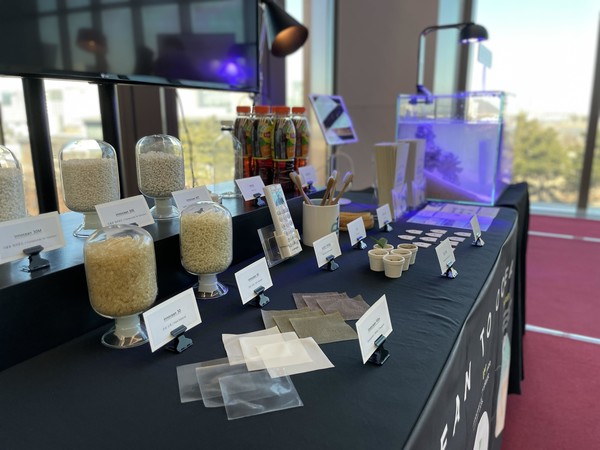
더데이원랩의 펠릿과 각종제품(출처 환경부)
Compared to the eco-friendly bags commonly seen in convenience stores these days, what advantages do yours have?
The biodegradable plastic bags used in convenience stores or cafes today are decomposed into water and carbon dioxide by microbes such as bacteria and fungi. Examples include PLA, a material produced by feeding corn starch to microbes, and petroleum-derived PBS and PBAT.
However, because biodegradable plastics can lose function if they dissolve during use, they are designed to decompose only under the specific conditions of “composting” at around 60°C. This makes natural decomposition difficult and also produces microplastics.
Our bags decompose not only under composting conditions but also in anaerobic digestion and household composting environments. They do not generate microplastics, either. While considering various usage scenarios, we aim to reduce environmental pollution caused by microplastics. Broadly, we approach this as a complementary solution rather than a competitor. In the long term, we plan to replace a wider range of plastic products step by step.
Do you believe The Dayone Lab’s technology will help create a better world?
Yes, I do. Discussions and attempts to develop sustainable, eco-friendly materials have been ongoing ever since the harmful effects of plastic became widely known.
When we talk about the dangers of plastic, people often argue that we should reduce its use for the sake of the Earth and future generations. That resonates with many. But simply cutting back on plastic because it’s problematic is only a short-term solution. The benefits of plastic are significant. Just imagine if all the plastic used for packaging, delivery containers, and trays suddenly disappeared—it would cause a great deal of inconvenience.
In the end, our mission is to preserve the convenience that plastic provides while improving the environment. We will develop technologies that benefit ecosystems and the global environment so that everyone can live in a better world.
By 2037, the era will come when virgin plastic is no longer used. We want to replace bags that can’t be easily reduced due to their convenience with our materials, capturing both environmental benefits and usability. I believe both people and the planet will be better off.
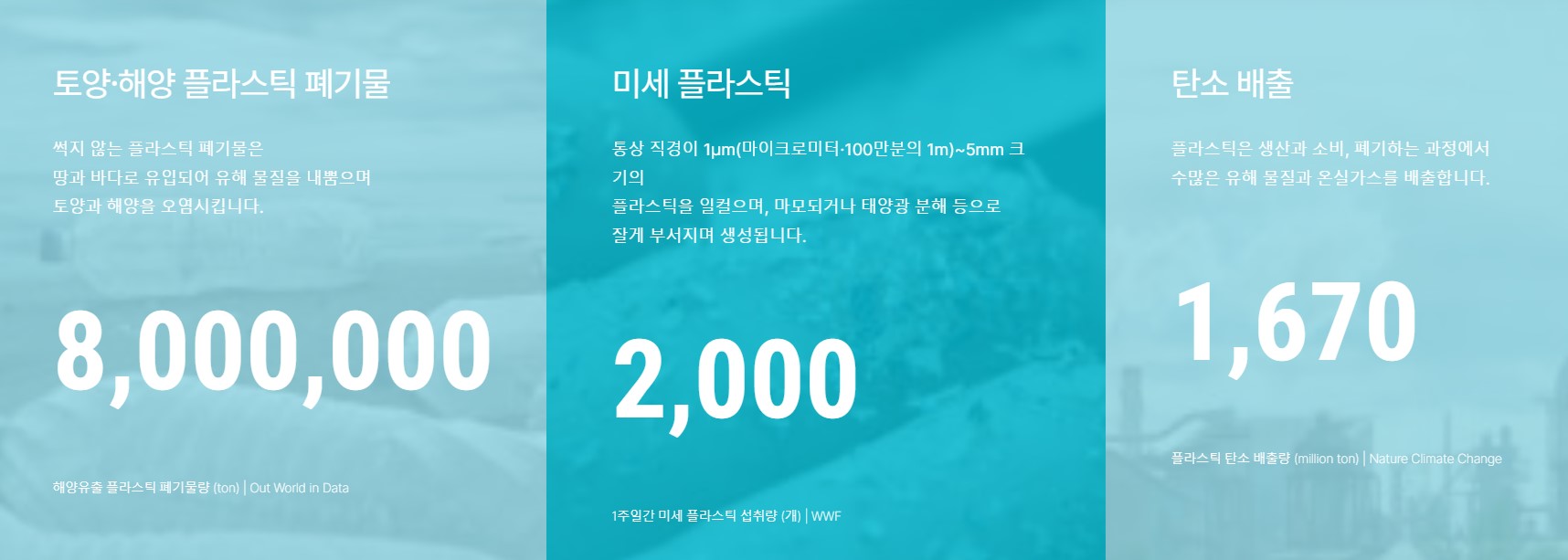
You’ve worked closely with Smilegate for a long time. What has made you continue this relationship?
Manufacturing has a high barrier to entry. It requires significant initial costs. Using quality materials also incurs substantial switching costs. Even while considering all of this, you still need to maintain yields and price competitiveness. No matter how good your technology or ideas are, you can’t mass-produce without foundational resources—meaning capital.
We secured our initial capital through personal funds, prize money from various competitions, capital support grants, and early investments from Smilegate Investment. Even after the seed round, Smilegate continued to help us grow and led the Series A investment as a lead investor.
But it’s not just about the funding. I was drawn to how sincerely they thought things through with us. During our IR meetings, Smilegate Investment asked sharp questions that pinpointed exactly what we were grappling with. It made me feel confident that by working together, we could share our challenges and insights. In fact, whenever we were unsure about our direction, they would ask, “Have you considered this angle?” giving us opportunities to reflect. They feel like learning partners, not just investors.
I heard that Smilegate contributed significantly to The Dayone Lab’s growth.
While staying at Orange Planet, the space and programs we received support from were excellent. We regularly checked our milestones and gained insights through “Orange Talk” sessions with the center director. That was a huge help.
Inside, I was able to meet other startups going through similar challenges. We built networks and shared empathy. Another major advantage was being in the same building as Smilegate Investment. We could save time on logistics and develop investment strategies together.
To me, Orange Planet felt like a “querencia”—a space in a bullring where the bull can retreat to rest safely away from danger. It was a haven in difficult times.
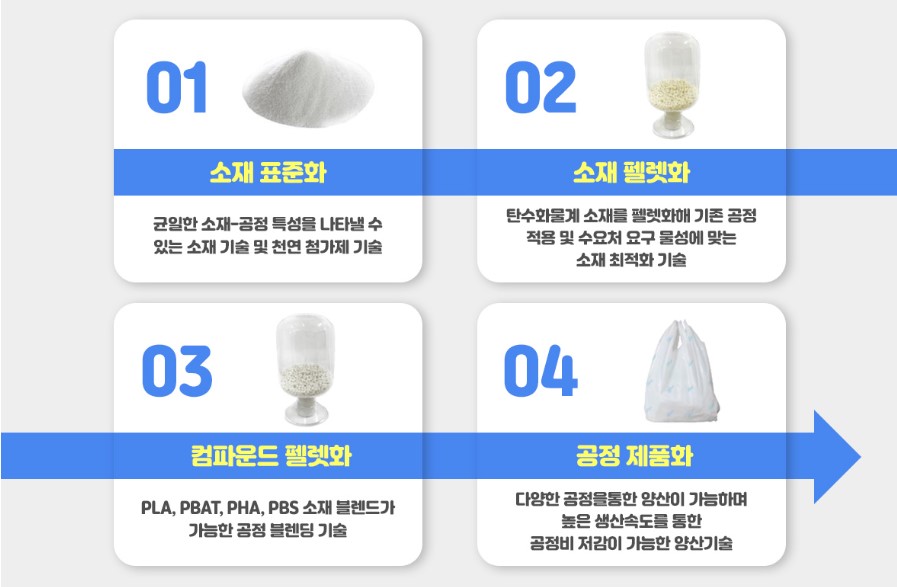
You’ve earned recognition at CES and secured investment. You must have many plans ahead.
Currently, The Dayone Lab is focused on producing and selling bags that replace single-use products. We plan to enter the plastics market starting with flexible packaging products like plastic bags and zipper bags, and eventually moving into food packaging trays. Recently, we have also begun discussions with companies interested in ESG initiatives. We will keep working to replace bags and trays so that future generations can enjoy life in a better environment.
However, when quoting content in articles, please credit it as “Smilegate Newsroom.”


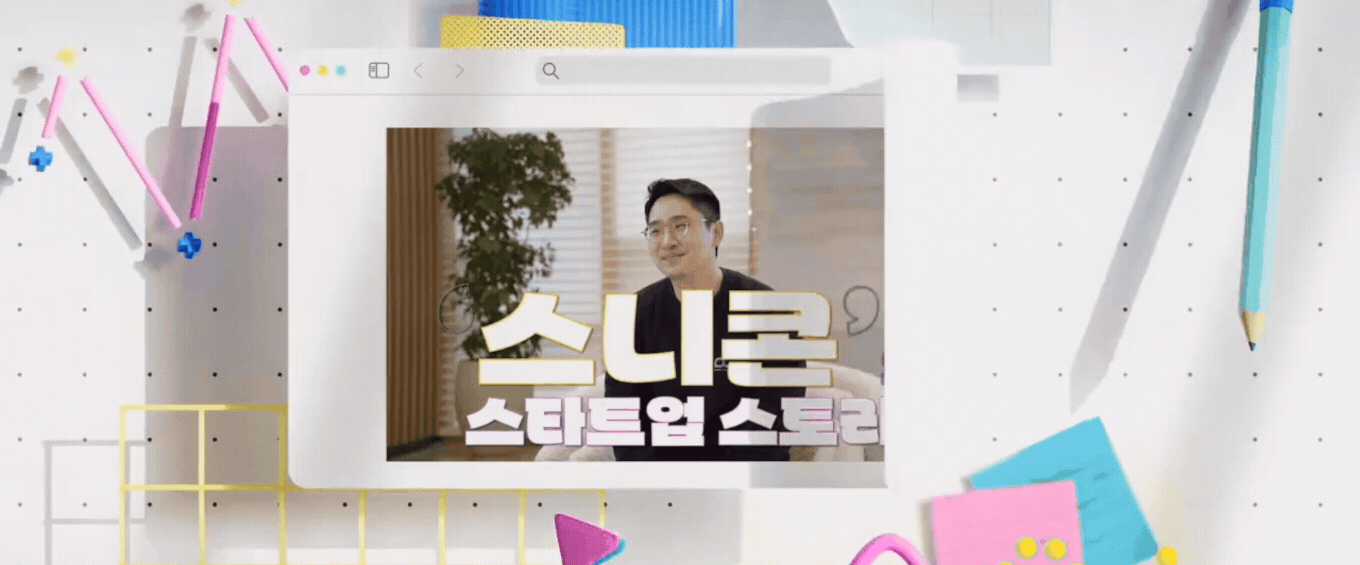
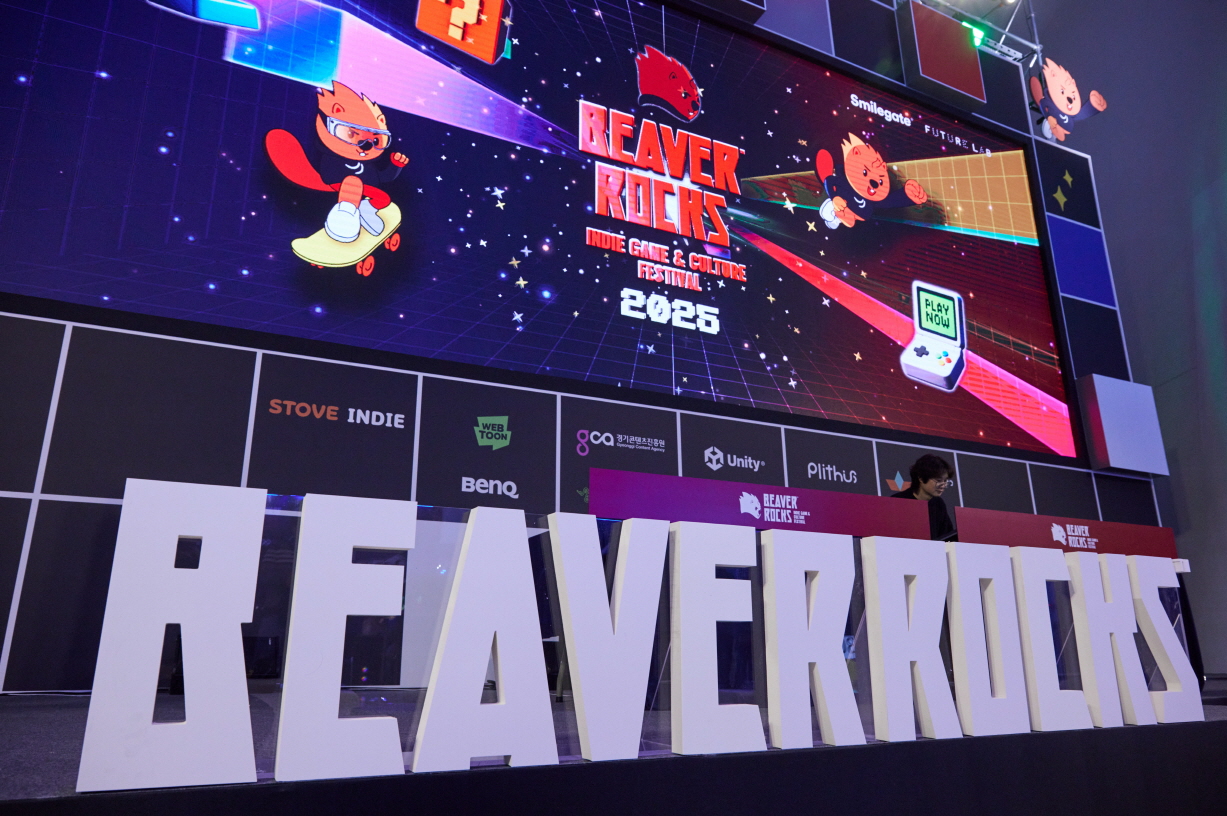
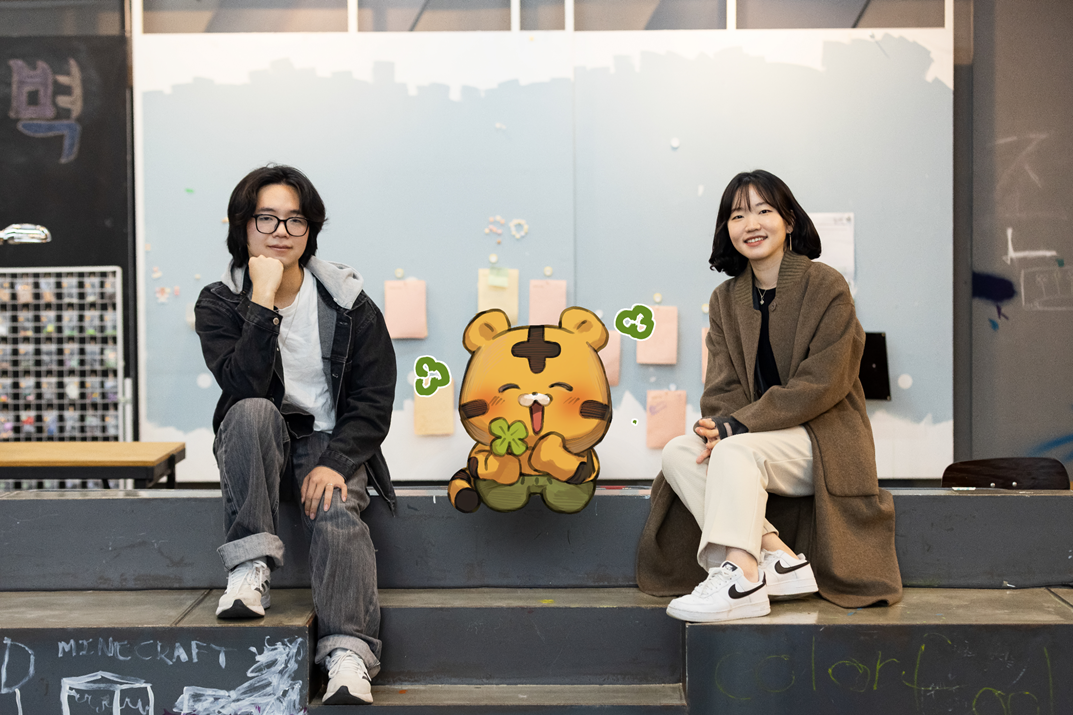


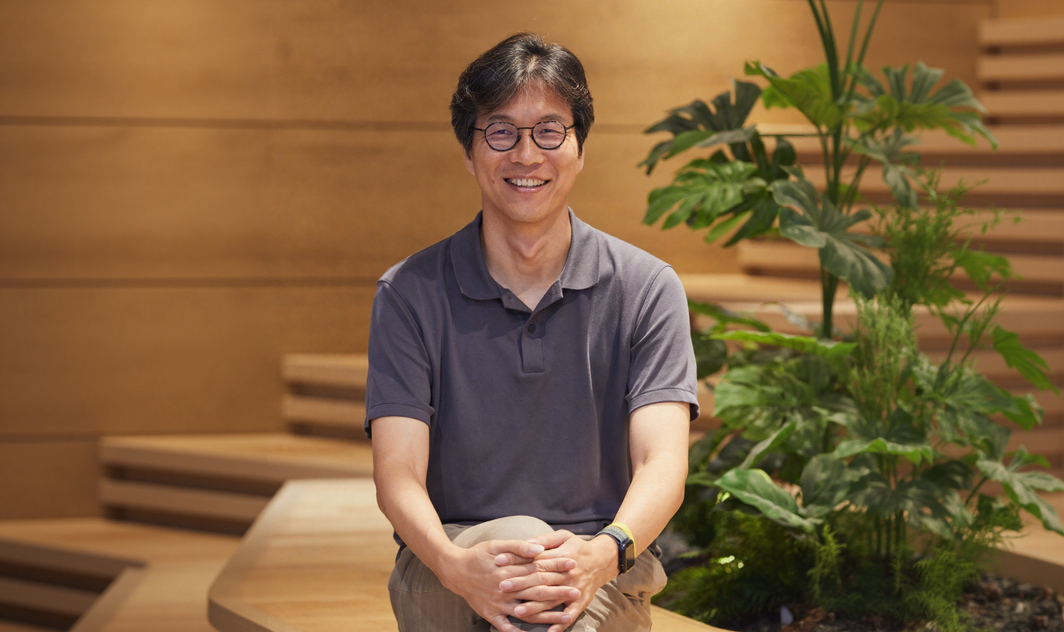
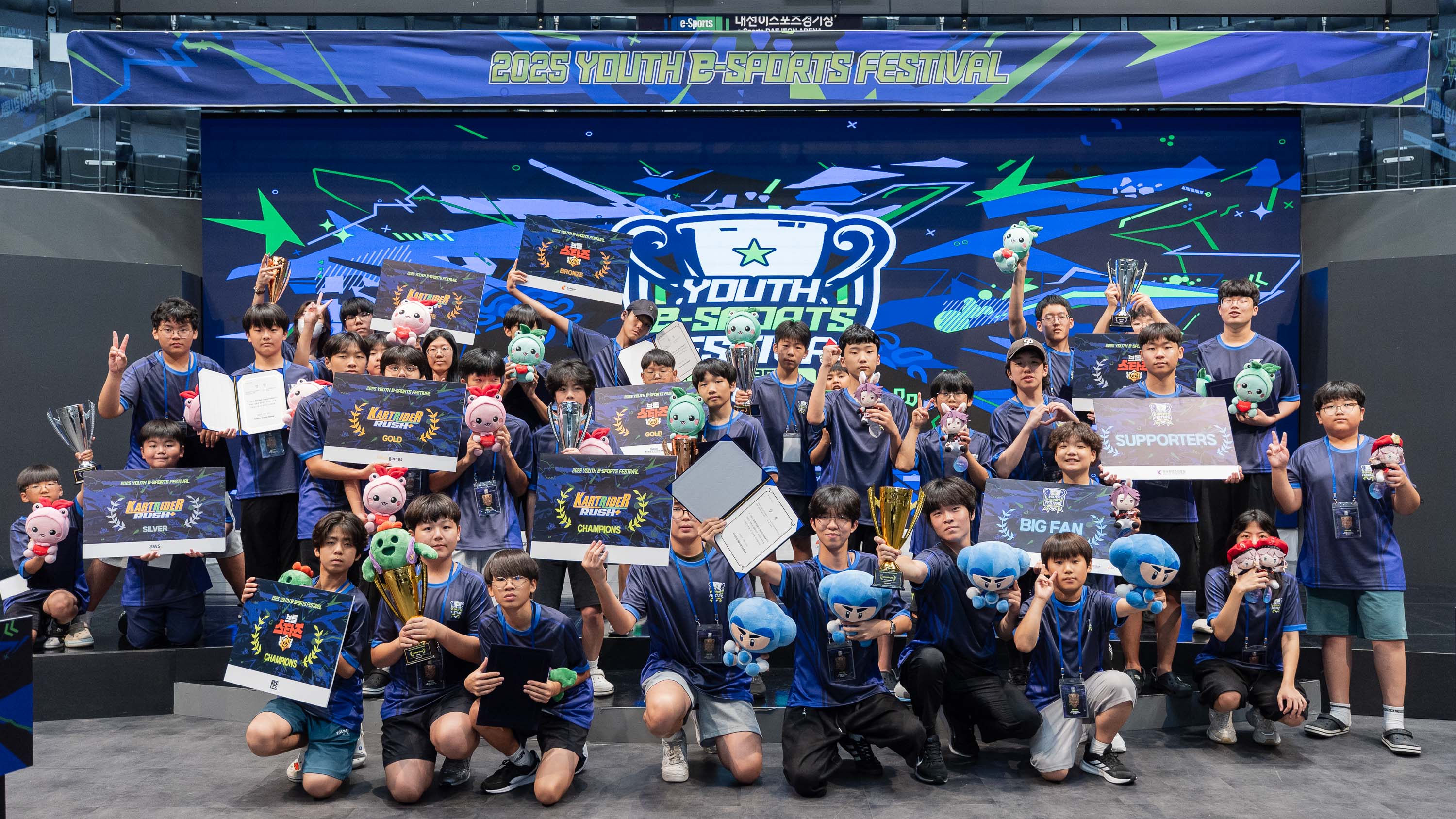

 TOP
TOP
